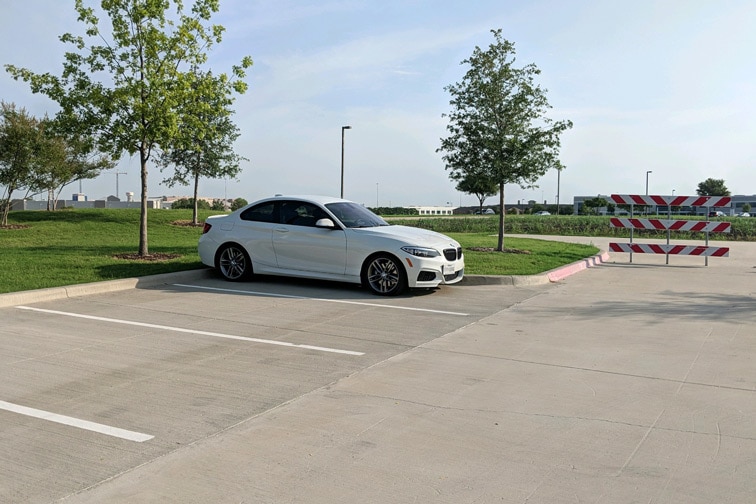Navigating Car Ownership During Uncertain Times
 Aaron Miller/Capital One
Aaron Miller/Capital One
Originally published on April 14, 2020
Even in pre-COVID times—when toilet paper is plentiful and coffee shops are a good place to grab a seat and enjoy a sugary caffeinated beverage with your WiFi—planning for all that life can throw at you is no easy task. That’s especially true of car-ownership, where something as innocuous as a screw in the driveway can wreak havoc on your work week.
In the face of a global pandemic, though, how does owning a car change? More specifically, what do you need to know about owning and caring for your car in an age of social distancing and elevated economic anxiety?
Now is a good time to set up automatic bill payments, if you don’t already use them
Automatic bill payments are almost always a good idea, especially with your auto loan. If you haven’t done so already, now is a very, very good time to set up auto pay. The benefits are clear: it’s one less thing you might forget amidst a universally stressful time, and a potential way to avoid incurring late payment fees. Be sure to check with both your lender and your bank to avoid any additional fees, and always ensure there’s enough money in your account to cover the withdrawal.
Your current total cost of ownership might not be an accurate representation
If you’re considering a new (or new to you) car in the short- or mid-term future, you’ve probably started to think about the total monthly cost of owning a car. That includes everything from the cost of the car itself (i.e. your monthly payment, including financing), insurance, and even how much fuel you use. If your daily driving habits have changed because you’re working from home, making a lot of deliveries, or simply not going out for social get-togethers, the amount you’re spending on gas is likely quite a bit different than before COVID. Whichever way it’s changed, take it into account as you try to figure out how much car you can afford.
If your financial situation has been impacted, loan extensions offer a form of temporary relief
When you encounter a temporary hardship, a loan extension will generally allow you to skip a certain number of immediate payments and add them onto the back of the loan. In most cases, the maturity date of the loan is then extended by the number of postponed payments, so while you may not have to pay during the brief reprieve, you’re still going to be accruing interest. In other words, loan extensions are not a means of saving money, but rather of postponing a set number of payments while you work to overcome life’s latest set of challenges.
Learn more about loan extensions—and their pros and cons.
If you’re in a position to buy a car, you should know how to find the best deals
With so much of the world rightly focused on the pandemic and so many working from home for a while, buying a car may seem like a secondary concern at best. The auto industry still has to move the vehicles already on dealership lots, though. It’s not practical to list every deal out there, but if you’re in a position to buy a new vehicle, it’s important to know how to find the best car incentives and rebates.
If you have additional questions that aren’t related to your car:
There’s no shortage of questions right now, and Capital One has a page dedicated to answering your frequently asked questions. For answers to everything from which branches are open to cancelling travel, visit our assistance page.
Written by humans.
Edited by humans.
 Capital One
Capital OneBanking should leave you with the same great feeling you get when you drive casually on a weekend afternoon. And that’s how I feel when writing helpful tips and reviews – passionate about cars and passionate about financing and everything in between when buying a new ride.
Related articles
View more related articles